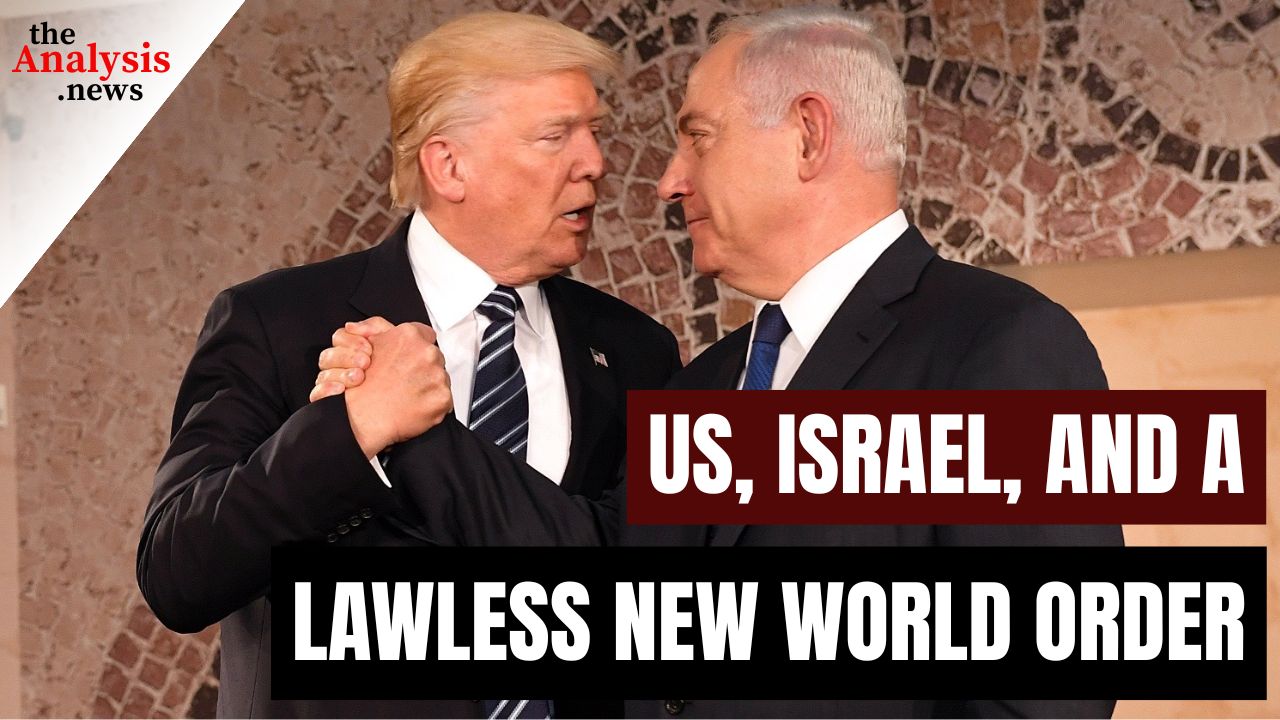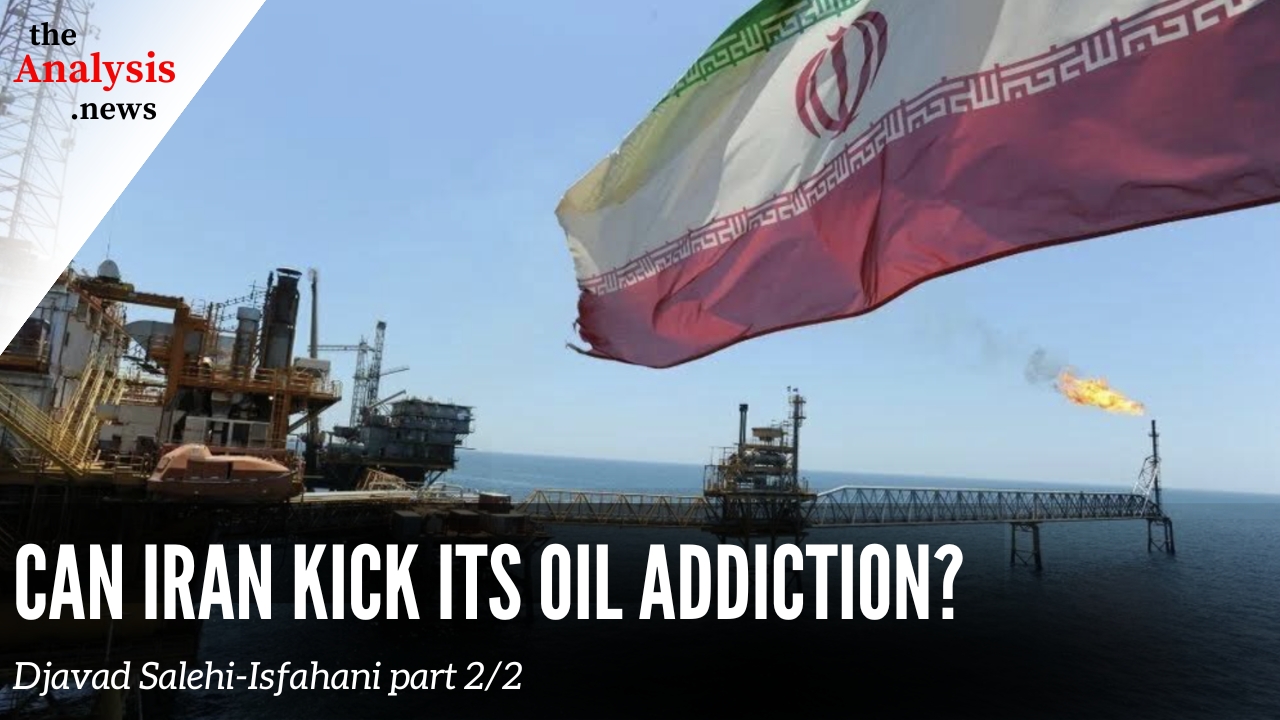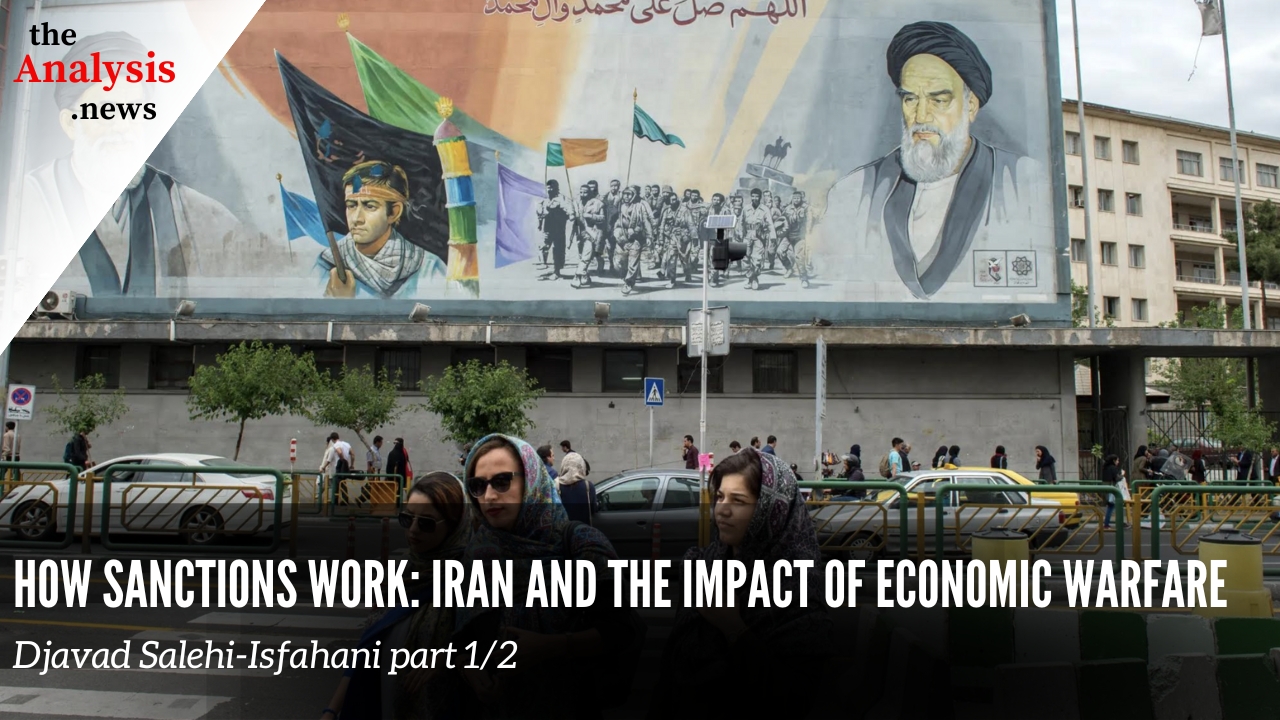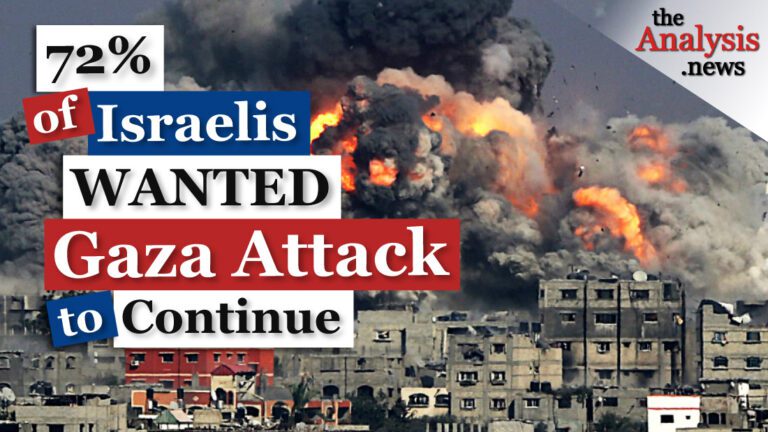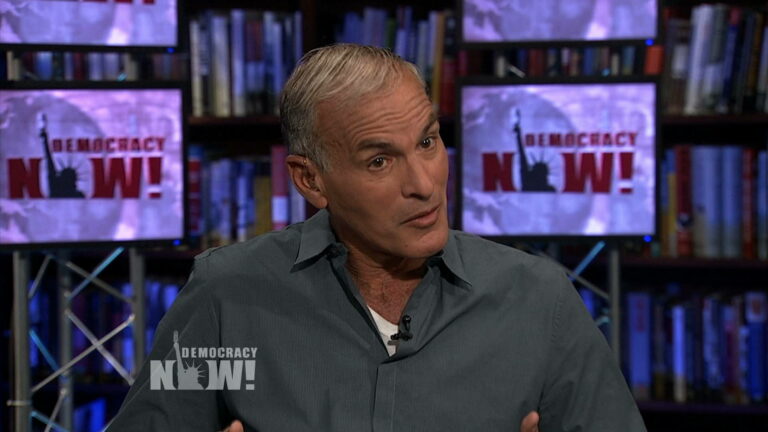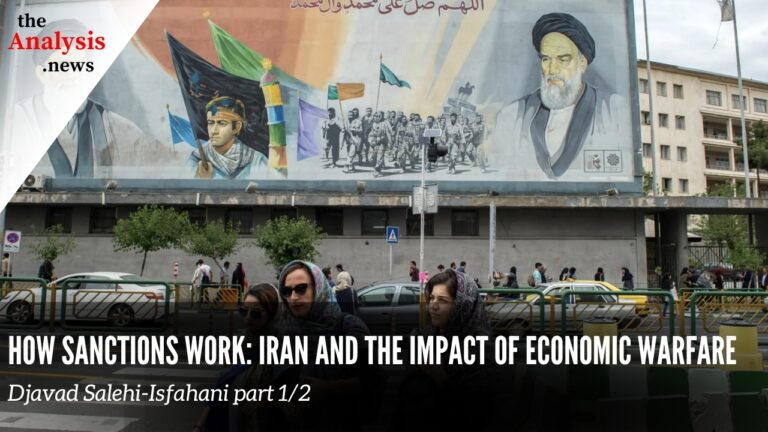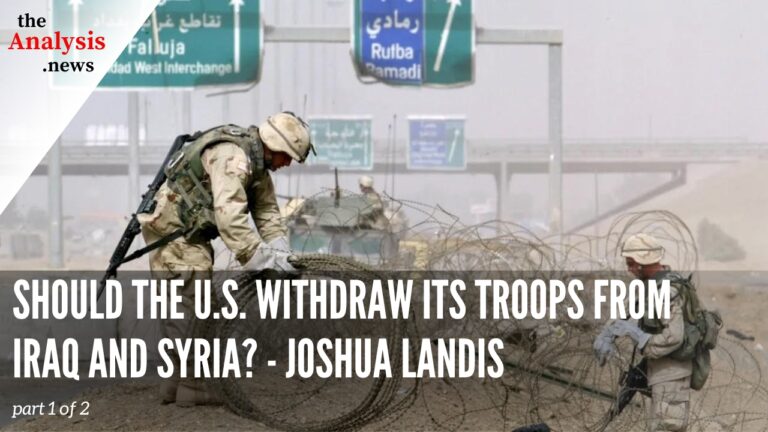In part 2, Richard Silverstein, analyst and author of the Israeli security state blog Tikun Olam, breaks down the Biden administration’s explicit support for Israel’s war crimes in Lebanon and efforts to eliminate Hezbollah. Unlawful U.S. approval for Israel’s extrajudicial killings of Iranian IRGC leader in Lebanon and Hamas leader Ismail Haniyeh on Iranian soil propelled Iran’s ballistic missile attacks on Israel, which inconveniently degraded Israeli military assets. Will Israel now strike Iran’s nuclear facilities?
IDF to Eliminate Palestinians from Northern Gaza – Richard Silverstein part 1/2
Talia Baroncelli
You’re watching theAnalysis.news, and I’m Talia Baroncelli. This is part two of my interview with Richard Silverstein.
If you like this content and you’d like to support us, you can visit our website, theAnalysis.news, and hit the donate button at the top right corner of the screen. Make sure you’re on our mailing list; that way, you get all of our content sent straight to your inbox. You can also like and subscribe to the show on YouTube, or if you prefer to listen to us as a podcast, you can go over to Spotify or other podcast streaming services such as Apple. See you in a bit with Richard.
Joining me now is American writer and analyst Richard Silverstein. He runs the website Tikun Olam, which focuses on the Israeli security state. He’s also published in other publications such as the New Arab and the Middle East Eye. It’s great to have you here today, Richard. Thanks for joining.
Richard Silverstein
Thank you for having me.
Talia Baroncelli
Well, it doesn’t seem like she’s [Kamala Harris] trying to carve out a new path or distance herself from the Biden administration’s foreign policy, and it would make sense to do so given the massive disapproval ratings that have been illustrated in numerous polls for Biden’s foreign policy in the Middle East.
We’ve also seen a shift in the way the State Department has been communicating its approval for Israel strikes on Lebanon. Initially, Matt Miller, the spokesperson at the State Department, said that they were trying to get Israel to exercise restraint when it came to the way they were responding to Hezbollah’s strikes on Israel.
After October 7, Hezbollah, in solidarity with Palestinians in the Gaza Strip, started firing missiles at Israel. Israel then disproportionately sent a much greater amount of missiles back into Lebanon and at Hezbollah targets, according to them, which also killed a lot of civilians. Now that more civilians are being killed, we’ve seen at least 2,000 people killed in Lebanon. The United States is no longer saying that they’d like to see a ceasefire or a diplomatic solution in Lebanon. They’re saying that Israel can essentially escalate to then de-escalate to use military pressure to, perhaps, in the future, get to a diplomatic solution. They’ve said that Hezbollah’s capabilities have been degraded. Does this seem to you like they’re using this as an opportunity to help Israel eliminate Hezbollah?
Richard Silverstein
Yes, I think that’s what the plan is. I think the U.S. sees destroying every enemy of Israel in the region, whether it be Hamas, Hezbollah, or Iran, as a way to create peace, a normalization process in the region in which Israel would be aligned with Saudi Arabia, UAE, and the Arab world in the region in North Africa. They would be at peace with Israel, and that would create stability throughout the region. While ignoring the fact that if you create a regional war in the Middle East, that is going to destabilize not just the Middle East, but it’s going to destabilize the whole world because Iran has allies in China and Russia. They’re not going to stand back and see regime change in Iran and the overthrowing of the clerical political leadership in Iran. They’re not going to let the U.S. and Israel do that. You have the possibility of drawing in not just the U.S., which is already there, but other powers that would be a much more serious obstacle to U.S. and Israeli interests. It seems like the U.S. is happy for Israel to degrade and destroy.
After all, Israel assassinated the only Hamas leader who was negotiating for a ceasefire in Tehran, deliberately insulting and demeaning the Iranians themselves by proving that they could assassinate an important political leader of the Palestinians. The Israelis and the U.S. basically share this goal. It’s part of what has been known as the Abraham Accords, where they have four Arab nations that have normalized and have set up diplomatic relations with Israel and then set up trade relations and communications relations. That’s what they want to see: the end of the thorns in Israel’s side and a reverting to the good Arabs in Saudi Arabia, in the Gulf, and elsewhere.
I don’t think that the Abraham Accords is a plan that is going to work for the region. It’s just papering over the major issues that are destabilizing the region. I think it will be a failure, ultimately.
Talia Baroncelli
Well, you mentioned Israel’s assassination of top Hamas leader Ismail Haniyeh while he was in Tehran, visiting Iranian President Masoud Pezeshkian. The Iranian Islamic Revolutionary Guard Corps said that they launched this recent missile barrage at Israel in response to that killing, as well as to the killing of Hassan Nasrallah. I wonder if Iran is currently telling Hezbollah that they’re actually not really going to support them in any meaningful way because this entire year, you’ve heard Hezbollah say that they would only stop launching attacks on Israel if there were to be a ceasefire in Gaza.
The Deputy Chief Leader of Hezbollah, Naim Qassem, recently said that he’s actually in support, or he would support a ceasefire in Lebanon, one which is being advocated for by the speaker of the Parliament, [Nabih] Berri, in Lebanon. This would be completely delinked or separated from a ceasefire in Gaza. He’s not conditioning a ceasefire in Lebanon anymore on a ceasefire in Gaza, which is a huge shift. Do you think that this is Iran speaking to Hezbollah, saying that we’re maybe going to leave you out to dry because Iran possibly wants additional sanctions relief?
Richard Silverstein
I read an article yesterday that essentially said what you just asked or said. Iran is most concerned about protecting itself and protecting the clerical structure and political structure of Iran, the Iranian Revolution, going back to 1979. Iran doesn’t want to endanger itself or endanger its regime. I think it’s come to the conclusion, possibly, that if it gets too involved in protecting Hamas and protecting Hezbollah, it will endanger Iranian interests. I think they’re taking a very measured approach. I think that when they see an opportunity, as long as they feel that it won’t hurt their interest, they will support Hezbollah, they will support Hamas because they’ve been giving them aid for quite a long time, military aid and financial aid. When it doesn’t cost them a price, that’s their natural inclination to support them because Hezbollah are Shiites, and the Iranians are Shiites. There’s a religious connection between them in addition to a political connection because Iran wants to have allies that will face Israeli power and protect the interests of Iran in the region. I think that Iran is playing it safe and being cautious. That’s why it only fired 180 missiles at Israel. It has millions of missiles at its disposal. It didn’t send 1,000 or 10,000, which it could have because it wanted to have a calibrated response. It wanted the U.S. to be able to say, well, we have to restrain Israel because Iran has constrained itself. I don’t think that Israel believes that. I think that we’re going to see a massive retaliation by Israel attacking Iran in the coming days.
They sent Yoav Gallant, the Defense Minister, to Washington the day before yesterday, and he was consulting with the U.S. They’re talking about targets in Iran. Who do they attack? Who the U.S. is willing to see them attacking? Who it’s not? The U.S. has said we don’t want Israel to attack Iranian nuclear sites. I believe it will have as much impact on Israeli decisions as all the other previous attempts saying it, the U.S. wants to ceasefire and is urging Israel to agree to a ceasefire. I believe the Israelis are going to launch a massive attack that will target the nuclear sites. I would be shocked if it didn’t target the nuclear sites.
Now, the reason why the U.S. doesn’t want Israel to attack the nuclear sites is because (A) Israel cannot eliminate Iran’s nuclear program, no matter how much it damages. They’ve built redundancy into their program so that if one facility is bombed, they have two, three, or four others elsewhere in the country they can turn to.
The second point I wanted to make about U.S. concern about Israel attacking Iran is that they realize that if Israel tries to destroy the Iranian nuclear program, Iran will respond by telling the U.S. that we are going to produce nuclear weapons. It has not done that until now. It has a nuclear program, and it’s building the capacity to have a nuclear weapon, but it’s not taking the final steps to actually put one together. It also still has not created the delivery systems that are needed to carry a nuclear warhead and attack any target location in Israel or wherever they want to fire it.
The Iranians have this plausible deniability about their nuclear program, and they aren’t doing the things that are really necessary to complete it. They’re restraining themselves because they know that if they go nuclear, that will give Israel even more of an opportunity to ostracize them and demean them and also to continue sanctions against Iran.
If it does attack the nuclear program, Iran will naturally respond by saying, okay, now we’re going nuclear. Now, we’re going to have nuclear weapons. If Israel wants to attack us now, we’ll hold over their head a nuclear weapon that we could launch against them. The U.S. does not want to see that because the U.S. has a red line in terms of not wanting the entire region to collapse into nuclear war. We’ll have to see what Israel decides to do. If I had money to bet on it, I would say they are going to do that. They are going to basically dare the Iranians to go nuclear. They’re going to assume that if Iran goes nuclear, this will enable the rest of the world to perhaps attack Iran and force the U.S. to attack Iran with Israel.
Then we get into this zone of complete, I don’t know how to describe it, insanity, where you have a global catastrophe. If you have two countries launching nuclear weapons against each other, God only knows where that ends up. It will be a total disaster and catastrophe.
Talia Baroncelli
Well, there are a lot of question marks there because the U.S. obviously knows that Iran does have certain capabilities. They said that the Iranian attack on Israel didn’t do all that much damage because the Iron Dome was there. The Iron Dome was able to intercept some of those missiles and the U.S. was involved in striking down some of those missiles. You wrote an article that brought a bunch of evidence and satellite imagery from X and other platforms showing that the Iranian strikes actually did cause more damage than what the Israeli media or Israeli officials are reporting on and that it’s actually taboo in Israel right now to speak about that damage. Some of these damaged sites include military bases in the Negev desert. One analyst was saying that F-35s were damaged. Other analysts were saying, no, that’s not true. What do you make of that?
To pick up on another point that you made, the U.S. said that they gave compensation to Israel to not strike nuclear facilities in Iran. That language in itself is just completely insane. They compensated them to not do that, to not escalate in nuclear terms, and that the response to any potential strikes on oil refineries would then be that Iran would hit Saudi oil refineries and oil fields. That would also lead to another escalation. Why don’t you first speak about what the Iranian damage was in Israel, and then we could speak about the other hypothetical escalatory situations?
Richard Silverstein
Iran launched 180 ballistic missiles at Israel, as we said earlier, in response to the assassination of Ismail Haniyeh in Tehran. By the way, he was there to pay his respects to Iran for the death of the previous President. I have some indications from sources in Israel that the Mossad may have been involved in the crash of the helicopter, which killed the former President. He was there for the funeral. It’s just the ultimate insult for Israel to assassinate him, as he was there for a funeral.
Talia Baroncelli
Wait, sorry. This is crazy. You’re saying you’ve spoken to people who say that the Mossad was potentially involved in the helicopter crash in which Ebrahim Raisi, the former President of Iran, and the Foreign Minister were killed in the Northwestern part of Iran, actually in, I think, Azerbaijan, technically. Is that what you’re saying?
Richard Silverstein
Yes. An Israeli security source told me that the Mossad was involved. Now, I’m not saying that there were Israeli agents who did this. Israel has many spies and operatives in Iran. The Mojahedin-e-Khalq (MEK), the terror group, the anti-Iranian regime terror group, has operatives inside Iran, who have been used, by the way, to murder Iranian nuclear scientists with plans originating with the Mossad. Israel would have many different ways of engaging in terror attacks inside Iran. It has done that already. The founder of the Iranian nuclear program was assassinated, and the New York Times ran a story with an Israeli reporter with very good Mossad sources saying that Israel used machine guns to murder him that were operated by satellite with an Israeli operator operating the machine gun that was used. So Israel has many different assets in Iran that could do this, and that were involved in the assassination of Haniyah. Israel did this because it has these people in Iran and provides them the weapons that they need to do this.
It’s easy to imagine that Israel could have shot down this helicopter. Iranians, of course, have not said anything about that. Israelis, obviously, have not. I believe it’s quite credible to say that they killed Raisi. I was told by this source that Israel has said that anyone anywhere that is hostile to Israel or engages in any act of aggression against Israel will be a target, and that was how he justified the killing of Raisi. I don’t want to make a statement that hasn’t been fully confirmed by any reliable sources, but I believe that it’s true that he was assassinated.
Let’s go back to talking about the Iranian missile attack. Those 180 ballistic missiles that the U.S. and Israel have said caused basically cosmetic damage, and that they didn’t land, and they didn’t have any accuracy. The fact of the matter is you mentioned the base in Negev. The base is called Nevatim, and it’s the most important Israeli air base in the country. It’s the place that houses all of Israel’s F-35 squadron. It’s a critical base for Israel’s ability to attack Iran. They will be used by the planes that are going to retaliate against Iran. So, that was an important target for the Iranians.
Instead of actually doing cosmetic damage, what actually happened, according to proliferation experts in the United States, was that there were actually 32 strikes at that base, and they actually destroyed some buildings. They mainly targeted areas of the base that were logistical surveillance and reconnaissance zones and didn’t strike the parts of the base where the F-35s were. In fact, a lot of the F-35s are stored underground. It would have been very hard to damage F-35s or destroy F-35s. I’m not giving too much credence to the idea that they did damage the F-35s, but they struck Nevatim, and they struck it many times. To say that’s cosmetic is ridiculous.
The other thing that the proliferation experts say is that the Iranians have learned from the previous missile strikes: 300 missiles were fired in April at Israel, and those were not very damaging. What the experts have said is that the Iranians have learned, and their accuracy has improved vastly. The lesson to be learned here is that if Iran does launch a massive coordinated attack, they will strike these important bases, and they will cause serious damage.
The other thing to mention is that one of the Iranian missiles targeted the Mossad headquarters, which is outside of Tel Aviv. It didn’t strike the building, but it came very close. It came within several hundred feet or maybe half a mile or quarter of a mile of striking the Mossad headquarters. If they can have that level of accuracy, Israel cannot defend against a massive attack like that. For it to act as if it has free will to strike and destroy whatever it can of Iranian assets or Hezbollah assets without there being any repercussions is really foolhardy on Israel’s part. It’s done and said many foolhardy things over the course of time. I wouldn’t give too much credence to the fact that Israel is going to restrain itself.
Talia Baroncelli
The U.S. policy so far has been incredibly risky. It’s been reckless. It’s all been performed under the guise of being rational, but it’s actually quite the opposite, and it’s just, as we see, enabling whatever Israel and Benjamin Netanyahu want to do. You said that one of the red lines for the United States would be for Israel to attack Natanz or other nuclear facilities in Iran. Would a possible explanation for that be that since Israel has nuclear weapons, the U.S. would be worried that it would maybe even feed into another arms race because Saudi would want to get nuclear weapons? Or is it even more acute than that? Is this really leading us into a nuclear conflict?
Richard Silverstein
The reason Israel got nuclear weapons was they saw a doomsday scenario, a Samson Option, something some people call it, where the only thing that would prevent it being overrun by the Arab States in ’67 or in ’73, which they came very close to. Well, not in ’67, but in ’73, they almost were overrun by the Syrians. Moshe Dayan went to the Prime Minister, Golda Meir, and suggested to her dropping a nuclear weapon in the desert in Saudi Arabia as a demonstration device that warned them that they would use nuclear weapons against Egypt and Syria if Israel was going to be overrun.
The U.S. probably realizes that if Iran faced the same doomsday scenario, if it had a nuclear weapon, it would use it. They realized that Iran would go ahead and create an actual nuclear weapon and publicly say that it has them and that it would use them. I think that the U.S. believes that Iran would use them if it had to as a last resort, just as Israel would. I think that the only level of rationality, if you want to call it that, in the Biden administration, is to see that the nuclear weapons are the Damocles that could just drop on the entire region when you are having a nuclear war.
Many people believe that if there ever was to be a nuclear war, it would start in the Middle East. The Middle East has always been a tinderbox in world history. Civilizations have clashed. Egypt, Syria, and all these other civilizations have always clashed right in the space that is Israel. There’s no difference today. You have superpower relationships happening. You have Russia involved with Syria. You have Iran involved with their proxies. If there is going to be this Armageddon, it very well could happen here. At least, I think that the military experts in the U.S. are willing to say to Israel to stop.
Now, it’s interesting that if the U.S. agreed to give some compensation to Israel for not bombing the nuclear sites, it reminds me of Barack Obama trying to persuade Netanyahu to stop his opposition to a Nuclear Deal in 2015. He agreed to a $30 billion weapons deal with Israel over 10 years. Now, of course, we’ve vastly gone beyond that with the billions that we’ve sent to Israel since 10/7. It would be in agreement with the past history of Obama, what he did for the U.S. to agree to give, possibly, the most advanced weapon systems that we have that we’ve held back from giving them. It wouldn’t surprise me if there was a quid pro quo here, as there have been in the past.
Talia Baroncelli
How do you see this ending in Lebanon? There are a million people displaced in Lebanon. Thousands of people have gone to Syria to seek asylum there. Some of them are actually Syrian refugees who went to Lebanon because they were escaping conflict in Syria. Of course, there have been thousands of civilians killed in Lebanon as a result of Israeli strikes on what they’re describing as terrorist infrastructure. You can’t say that an apartment block is terrorist infrastructure if there are a few Hezbollah militants in that building; it’s still civilian infrastructure. What the U.S. is saying is pretty absurd because they’re saying that it’s limited. They’re characterizing the operation as a limited ground invasion. Do you see the U.S. going all the way? How far is this going to go before the attacks on Lebanon end?
Richard Silverstein
Well, I think we should talk about the Israeli invasion of Lebanon, which started about a week ago. The world media in Israel are calling it an incursion instead of an invasion, limited and targeted. They’re using all these terms, these vague euphemistic terms for what Israel has done. It’s invaded Lebanon. It invaded Lebanon in 1982. It went up to the Latani River. It occupied Southern Lebanon until 2000, 18 years of occupation. Now, they’ve done the same thing. They’ve invaded the south, and they’re going to go up 18 miles to the north of the border to the Litani River. My guess is that the IDF plans to occupy all of Southern Lebanon, either permanently or until there’s a ceasefire if there ever is one.
You now have a situation where Israel Israel is in the same predicament that it was in 1982. Over the course of that 18 years, hundreds of Israeli soldiers were killed. Hezbollah, which hadn’t existed in 1982, became a power and forced Israel out of Lebanon. Even if in the theoretical possibility of destroying Hezbollah, something else will come and take its place. In another 18 years, we will have Israel forced to leave Lebanon because this will not stop. No matter what happens to Hamas, no matter what happens to Hezbollah, no matter what happens to Iran, without dealing with the underlying issues of Palestine, the Palestinians, what role Israel is going to take in the Middle East that is not going to be aggression, not going to be permanent war as it is right now. Until those issues are resolved, there is going to be a perpetual resistance to Israel and to its hegemony, to its willingness to exert its power, to project its interests on these hostile parties.
I think the U.S. is going to sit back and let Israel do what it wants to in Lebanon and try to destroy Hezbollah and destroy Hamas. It thinks that maybe that will calm things down in the Middle East. Let Israel do what it wants to do and see if it works, which is a crazy policy for a country to have, for a superpower to have. One of our allies wants to go crazy, and we want to just sit back and let them see how successful they are. To me, it’s a recipe for a regional catastrophe, as I mentioned earlier.
Talia Baroncelli
One final question. This is more on the discursive use of referring to international law. The U.S. keeps saying that all we want to see in Lebanon is the implementation of the UN Security Council Resolution 1701, in which Hezbollah would retreat from the Lebanese border with Israel, and they would go behind the Litani River. Then there would be, I think it’s UNIFIL and a Lebanese state army, LAF, the Lebanese Army Forces, who are there to create a buffer zone so that there’s a buffer zone between the Litani River and the border with Israel. It seems like they keep using this reference to the implementation of the Security Council Resolution as a way to actually enable further Israeli war crimes in Lebanon. They’ve been doing the same thing with reference to getting a ceasefire and also a two-state solution, ultimately. Every time there’s any question of Israeli war crimes being perpetrated in Gaza, they say, “All we want to see is ultimately a ceasefire and also the creation of a Palestinian state in a two-state solution.” It seems like they use these words and references to these resolutions and these agreements as a way to actually cover up war crimes. I wonder what you make of that.
Richard Silverstein
Well, I think it’s important to look at Southern Lebanon. If Resolution 1701 were to be fully implemented, Hezbollah would withdraw to the Litani, as you said, and Israel would respect what’s called the Blue Line between Israel and Lebanon. That was essentially never fully implemented. There is a UNIFIL present there. I think there’s some Lebanese army presence, but it’s really small and ineffectual. If you look at this from the Lebanese/Hezbollah point of view, they want there to be sovereignty over Lebanon and all of Lebanon. If Hezbollah has to evacuate these 18 miles of territory of Lebanon, then the Lebanese state has ceded control of its own territory. That’s something that no country would ever want to recognize.
Imagine if, say, Mexico went to the United Nations and said that all of the territory that we conquered in the 1848 Mexican War of Mexico has to be turned into a buffer zone, and it has to be filled with UN observers. The U.S. would never agree to limit its sovereignty. We’re asking Lebanon because it’s a weaker, less powerful state than the U.S., we’re asking Lebanon to ceed all of that territory, effectively to Israel, because Israel is the one demanding that Hezbollah vacate the territory.
I think that the U.S. saying that they want to implement 1701 is a way that they know that Hezbollah cannot agree to. Therefore, the U.S. is not going to force a ceasefire on the terms that the Deputy Secretary of Hezbollah offered, which is a ceasefire not linked to a ceasefire in Gaza, which, as you said, is a significant concession. The U.S. sees Israel in its strong position in Lebanon, that it’s destroyed much of the senior leadership of Hezbollah, and that’s what the U.S. wants to see, and they want to let Israel do that. It’s really using the UN resolution as a fig leaf for a continued war and genocide. I call it genocide 2.0 because Gaza is genocide 1.0. Israel is starting to implement that in Lebanon. It’s just a terrible, terrible path for the region to follow.
Talia Baroncelli
Would you say the same about the two-state solution as well? Every time they bring it up, it’s a way to prolong the existing conflict to say that, in the end, we still want a two-state solution, so all of what’s going on now is justified, and we’ll eventually get there.
Richard Silverstein
I think that the use of the two-state solution is, again, a fig leaf. They know that the two-state solution is hopeless. It’s long been hopeless. Israel will never agree to it. The entire raison d’être of the right-wing government is to oppose a two-state solution and not just to pose it as a peripheral policy or agenda but as the main, the sole, maybe not the sole part of its agenda, but certainly, among the top parts of its agenda is to stop a two-state solution. w How would you force Israel to implement a two-state solution unless you wanted to force them by having UN forces impose a solution on Israel? How likely is that to happen? Completely unlikely. It won’t ever happen.
Talia Baroncelli
They would have to withdraw from all the illegal settlements in the West Bank.
Richard Silverstein
Yes, absolutely. You’d have to do that, or you’d have to create a one-state solution that Israel, with every fiber of its body, would oppose. Those things will never happen. This is a way of saying, really, we want to preserve the status quo. We know we can’t get a two-state solution. Maybe we’re hoping it won’t get any worse. We’ll just be satisfied with saying these bromides about how we support a two-state solution. That’s the only option that’s viable. They were having the Saudis say, “We won’t agree to normalize relations with Israel until Israel recognizes a Palestinian state.” Well, that’s another way of the Saudis saying, “We’re not ready for normalizing relations with Israel because we know that our heads might roll, the royal family heads might roll if we agree to normalize without any possible solution to the Palestine problem.”
It really angers me to have people who should know better, even if they’re doing it for nefarious reasons, to think that they can pull the wool over the eyes of the world by using this camera of a two-state solution, which is dead on arrival. It’s insulting to people around the world that they would say something that they knew was a lie, that they knew could never happen. It’s, again, part of this use of language to conceal and befuddle, to throw up smoke rings that allow the worst aspects of the status quo to continue on infinitum.
Talia Baroncelli
One other thing that also really infuriates me is when you hear people like the U.S. ambassador to the UN, Linda Thomas-Greenfield, say that the Palestinians, in their current form as a people, do not fulfill all the requirements needed to have statehood. It’s a complete revision of history in a way because in order to look at what’s happened in Gaza and the West Bank, you would have to go back and see how Hamas actually came to power and the role of the Palestinian Authority and also Netanyahu’s role in propping up Hamas in order to keep the PA from being coherent because they didn’t want the PA to have as much power so that there would be no creation of a Palestinian state. There have been all these endeavors to actually prevent the creation of a Palestinian state. And then, of course, the war on Gaza, which is completely destroying the fabric of society in Gaza. To say that, oh, well, they actually don’t meet all the criteria necessary, they don’t have effective control over the region, it’s like, well, you’ve just bombed the place to smithereens. So how can you then say that?
Richard Silverstein
It’s effectively giving Israel veto power over creating a Palestinian state. As long as they refuse or they don’t want a Palestinian state, the U.S. is going to go along with that. The idea that people, the Palestinian people, have to prove that they deserve a state and that they have to fulfill criteria before where they get the right to have a state is more than insulting. How many countries have felt they needed permission from their worst enemy to create a state of their own? How many countries in Africa said, well, we want the permission of our colonial master? Will they give us a state? Will they allow us to become an independent state? That’s why they have an independent movement. That’s why they fought against the British. They forced the British to leave, and that’s when they established the state.
The Palestinians deserve no less. They deserve the right to create their own state, whether it’s a state that we approve of or we disapprove of. There can be enough things put in place that guarantee that the Palestinian state will not engage in aggression against Israel. There are enough ways to guarantee that without saying, you can’t have your state until you prove to us you’re going to be a good, deserving nation or people. That’s just not the way states are formed. It’s a pipe dream when she says that. It’s insulting to the imagination for them to try to pass that off as a serious argument.
Talia Baroncelli
Richard Silverstein, it’s been a pleasure speaking to you. Thanks so much for all of your time. Thank you for watching theAnalysis.news and for all of your support. See you next time.
Podcast: Play in new window | Download | Embed
Subscribe Apple Podcasts | Spotify | Android | iHeartRadio | Blubrry | TuneIn | Deezer | RSS
Never miss another story
Subscribe to theAnalysis.news – Newsletter
Richard Silverstein writes the Tikun Olam blog, devoted to exposing the excesses of the Israeli national security state. His work has appeared in Haaretz, the Forward, the Seattle Times and the Los Angeles Times. He contributed to the essay collection devoted to the 2006 Lebanon war, A Time to Speak Out (Verso) and has another essay in the collection, Israel and Palestine: Alternate Perspectives on Statehood (Rowman & Littlefield).

